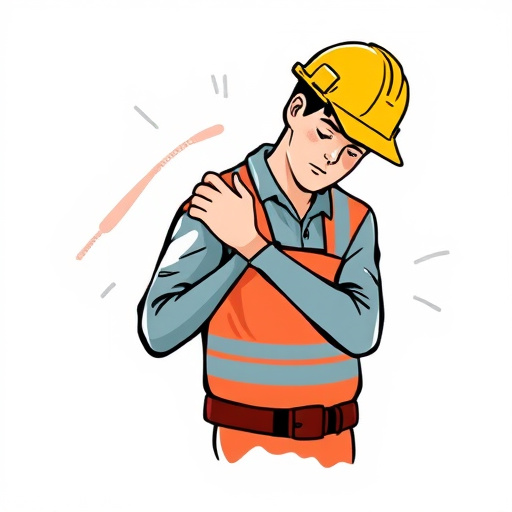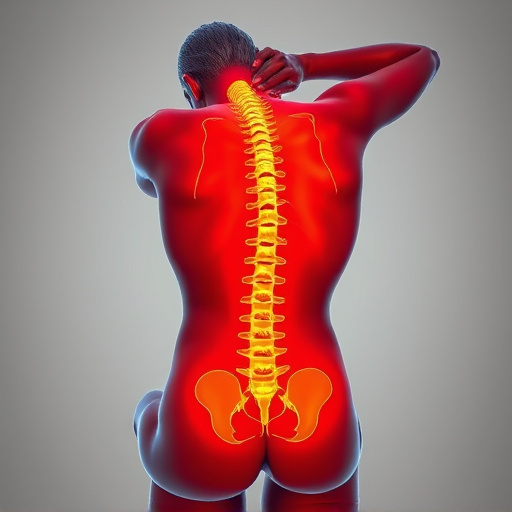Workers compensation doctors specialize in managing workplace injuries, adhering to insurance guidelines. They provide essential care, assess work-related conditions, collaborate with employers on return-to-work strategies, and support long-term well-being. Unlike personal physicians, they focus on occupational medicine, evidence-based practices, and legal aspects of claims, strictly following workers' comp protocols.
When it comes to managing work-related injuries, understanding the distinct roles of a workers’ compensation doctor and a personal physician is crucial. While both are medical professionals, their focuses differ significantly. A workers’ comp doctor specializes in evaluating and treating workplace injuries as per state-mandated guidelines, ensuring swift recovery and return to work. In contrast, personal physicians treat various ailments but may not be specialized in work-related injuries, offering a broader range of care. This article explores these differences, focusing on diagnosis and treatment approaches, to help employees and employers navigate the complexities of workers’ compensation effectively.
- Understanding Workers Compensation Doctor Role
- Personal Physician vs. Work-Related Injuries
- Key Differences: Diagnosis & Treatment Approaches
Understanding Workers Compensation Doctor Role

Workers compensation doctors play a pivotal role in managing injuries and illnesses that arise from workplace incidents. Their primary responsibility is to provide medical care that aligns with the specific guidelines and regulations set by workers compensation insurance programs. These professionals are often called upon to assess, diagnose, and treat work-related injuries or diseases, ensuring that employees receive appropriate care while also managing costs for employers and insurance providers.
In their role, workers compensation doctors focus on facilitating a smooth transition back to work for injured or ill individuals. They may prescribe treatments like pinched nerve relief and sciatica relief, recommend functional rehabilitation programs, and collaborate with employers to determine suitable work adjustments. This comprehensive approach aims to not only address the immediate medical needs of employees but also promote long-term well-being and job retention.
Personal Physician vs. Work-Related Injuries

When it comes to treating work-related injuries, a workers compensation doctor plays a specialized role. These healthcare professionals are trained to assess and manage injuries sustained on the job, ensuring employees receive appropriate medical care and disability benefits as outlined by workers’ comp laws. Their expertise lies in understanding industrial medicine, workplace hazards, and the legal aspects of claims. In contrast, a personal physician typically focuses on general health maintenance and treatment for non-work-related conditions. While they can offer excellent care, their primary goal is not to navigate the complex world of workers’ compensation claims and regulations.
For individuals who have suffered an injury in an auto accident recovery, the distinction between these two types of doctors becomes apparent. Personalized treatment plans, tailored to address specific symptoms like neck pain relief, might differ significantly from the care provided by a workers comp doctor, who must also consider the patient’s ability to return to work and the financial implications of their injuries. Understanding this difference is crucial for employees navigating the process of seeking medical attention and filing claims for work-related injuries.
Key Differences: Diagnosis & Treatment Approaches

When it comes to diagnosis and treatment approaches, there are several key differences between a workers compensation doctor and a personal physician. Workers compensation doctors are specialized in occupational medicine, focusing on conditions and injuries related to work activities. They adhere strictly to guidelines set by insurance carriers and legal requirements, ensuring treatments align with compensable work-related injuries or illnesses. These professionals prioritize evidence-based practices, documenting every step of the patient’s journey, from initial assessment to ongoing care, to facilitate workers’ return to work when safe and appropriate.
In contrast, personal physicians, often referred to as primary care providers, take a broader approach to healthcare. They manage a wide range of medical conditions, including acute and chronic illnesses, and may specialize in areas such as family medicine, internal medicine, or pediatrics. While they also provide diagnosis and treatment for sports injuries and other health concerns, their focus isn’t exclusively on work-related injuries like a workers compensation doctor. Personal physicians often collaborate with specialists to offer comprehensive care, including joint pain relief and soft tissue injury treatments, tailored to each patient’s unique needs, outside of the legal and insurance frameworks typically applied in workers compensation cases.
When it comes to treating work-related injuries, a clear distinction exists between a workers’ compensation doctor and a personal physician. The former specializes in evaluating and managing injuries sustained on the job, adhering to specific legal and insurance requirements, while the latter focuses on comprehensive patient care, considering all aspects of an individual’s health. Understanding these differences is crucial for employees and employers alike, as it ensures workers receive appropriate and efficient treatment for work-related injuries, ultimately facilitating a smoother return to work.














